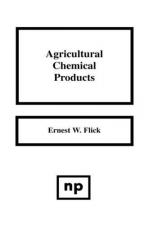|
This section contains 1,244 words (approx. 5 pages at 300 words per page) |

|
The development of modern agricultural practices is one of the great success stories of applied sciences. Improved plowing techniques, new pesticides and fertilizers, and better strains of crops are among the factors that have resulted in significant increases in agricultural productivity.
Yet these improvements have not come without cost to the environment and sometimes to human health. Modern agricultural practices have contributed to the pollution of air, water, and land. Air pollution may be the most memorable, if not the most significant, of these consequences. During the 1920s and 1930s, huge amounts of fertile topsoil were blown away across vast stretches of the Great Plains, an area that eventually became known as the Dust Bowl. The problem occurred because farmers either did not know about or chose not to use techniques for protecting and conserving their soil. The soil then blew away during droughts, resulting not...
|
This section contains 1,244 words (approx. 5 pages at 300 words per page) |

|


